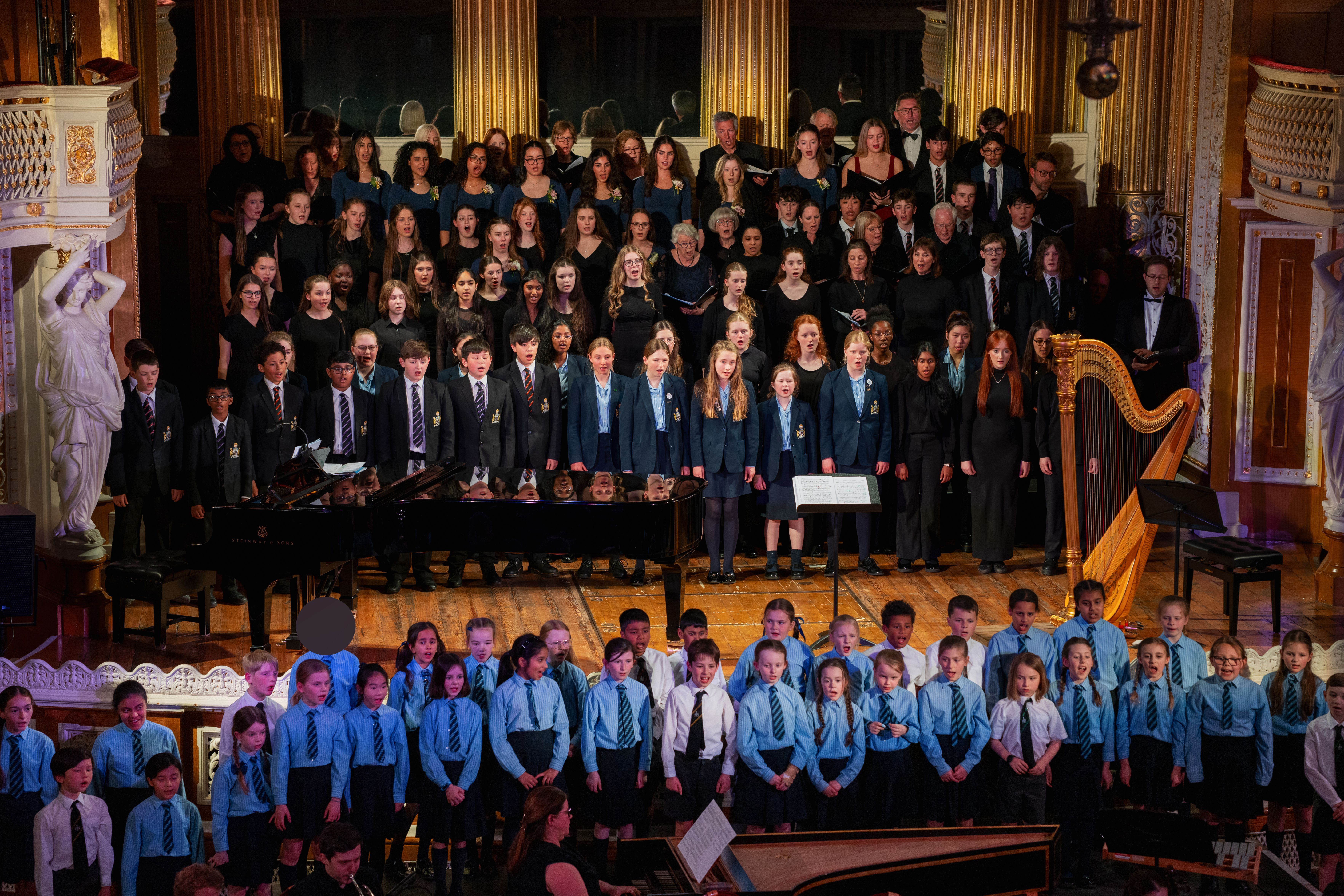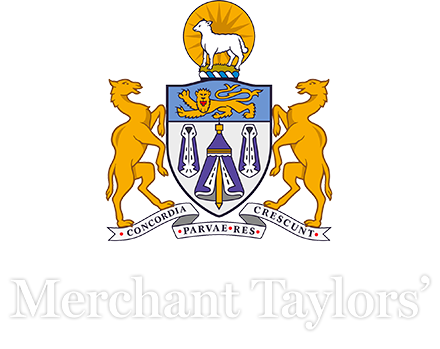Bruce Moffat (1956 Leaver) – An Engineering Research Career in Broadcasting
Bruce Moffat (1956 Leaver)
An Engineering Research Career in Broadcasting

I started in Merchants’ aged 9 in 1947, already sketching TV cameras on dollies, and when I was 11 I was offered a part in a play at the Liverpool Playhouse; I’d been seen by Gerald Cross, the producer there, in Dear Octopus with the Blundellsands ADS. Six weeks off school was needed but there was legally insufficient tutoring available for me and so, much to my relief, I didn’t do it. Instead the boy’s part was played by a girl, Beryl Bainbridge (later Dame Beryl Bainbridge) who was 16 and had left our Girls’ School and become a member of the repertory company. An exciting spin-off was my tiny ‘extra’ part in the film Waterfront, set in Liverpool – see it free on YouTube; the engineering and technology in the making of the film fascinated me.
Techniques involved in theatre, film, television, radio, recording and, above all, music in all of those media greatly stimulated me. I saw myself backstage rather than trembling before a live audience. I sang in the school choir and I stage-directed several school plays and made numerous recordings and films using borrowed state of the art equipment. Through this and experience in CCF Signals I learned about electronics, enough to make me realize that I wanted to become an electronics engineer. With a State Scholarship I went to Keble College Oxford to read Engineering Science. All of this prepared me well to apply successfully for an engineering job in the BBC in 1959 in the pioneering days when engineers had a big say in running broadcasting, but I didn’t take up the job. Instead I stayed at Oxford to pursue a doctorate in microwave electronics, specifically to study the design and testing of dielectric-loaded linear electron accelerator structures; ‘linacs’ have many applications in nuclear physics and medicine. I must admit I stayed partly because my girlfriend Anne Phillips, now my wife for 52 years, was a nurse at the Radcliffe Infirmary in Oxford.
In 1962 the hairs on the back of my neck stood up when I saw in New Scientist a job advert for a musical engineer in BBC Research Department at Kingswood Warren in Surrey; I just knew I was right for the job and to my delight the BBC appointed me. Their decision was partly because I gave the ‘right’ answer about the acoustics of Liverpool Philharmonic Hall – they’re good! But there was a snag: I didn’t complete my DPhil until 1964 and so it was studio acoustics by day and microwave electronics by night! My wife and the BBC were enormously helpful in the production of my thesis.
One of my first tasks at Kingswood Warren was to make a stereo sound recording of the opera Turandot from a ‘clean feed’ of the left and right signals from the desk in Covent Garden for use in assessing the acoustics of the newly refurbished Royal Opera House. One of my last tasks in the BBC in 1990 was to help to make a digital TV recording in high-definition with surround sound of the ballet The Prince of the Pagodas at Covent Garden, starring Darcey Bussell. In between those tasks lay the better part of 30 years in engineering research in broadcasting. After studio acoustics I worked on video tape recording and then spent 1968-70 as R&D Manager of Ilford Zonal, developing magnetic tape, disc and film products. Returning to BBC Research in 1970 I worked on digital audio and video signal transmission including NICAM. I was gradually promoted in the 1970s, heading sections dealing with baseband transmission systems and storage/recording, moving to head Studio Group in the early 1980s focused on all-digital studios and HDTV, and finishing up as Head of Research Department in 1984. The Department covered all areas of broadcast engineering and had about 200 staff, 100 of them professionals in science, technology, engineering and mathematics; today it has bases in London and Salford.
In the mid-1980s the BBC came close to launching Direct Broadcasting of TV by Satellite using higher-power Olympus satellites before deciding to hold back for commercial reasons while Rupert Murdoch began his satellite broadcasts using lower-power satellites designed for telecommunications, not broadcasting. Fortunately receiver sensitivity was rapidly improving so comprehensive satellite broadcasting using lower power became practicable. Much of the technology used in these and many other kinds of broadcasting system emanates commercially from BBC R&D.
I retired from the BBC in 1991. Looking back I can see that my training as a chartered engineer gave me wonderful experiences, and a very good salary, working in the UK and abroad alongside stimulating people ranging from brilliant ‘back-room boys and girls’ to ‘front of camera’ stars like Peter Gabriel and David Attenborough.
Latest News

- A Legacy in Song: Merchant Taylors’ Hosts Spectacular Gala
- Welcome Mr Philip Dearden: New Head of Merchant Taylors’ Schools
- Merchant Taylors’ RAF Cadets Achieve Second Place in National Finals
- Merchant Taylors’ Celebrates Cadet Achievements at Inspection Day
- Year 6 Pupils Shine in Romeo and Juliet Performance
Upcoming Events
- Easter Holiday Club 2025 on April 22, 2025 8:00 am
- Marvellous Merchants’ Superheroes on May 21, 2025 4:00 pm
Privacy Overview
| Cookie | Duration | Description |
|---|---|---|
| cookielawinfo-checkbox-analytics | 11 months | This cookie is set by GDPR Cookie Consent plugin. The cookie is used to store the user consent for the cookies in the category "Analytics". |
| cookielawinfo-checkbox-functional | 11 months | The cookie is set by GDPR cookie consent to record the user consent for the cookies in the category "Functional". |
| cookielawinfo-checkbox-necessary | 11 months | This cookie is set by GDPR Cookie Consent plugin. The cookies is used to store the user consent for the cookies in the category "Necessary". |
| cookielawinfo-checkbox-others | 11 months | This cookie is set by GDPR Cookie Consent plugin. The cookie is used to store the user consent for the cookies in the category "Other. |
| cookielawinfo-checkbox-performance | 11 months | This cookie is set by GDPR Cookie Consent plugin. The cookie is used to store the user consent for the cookies in the category "Performance". |
| viewed_cookie_policy | 11 months | The cookie is set by the GDPR Cookie Consent plugin and is used to store whether or not user has consented to the use of cookies. It does not store any personal data. |

